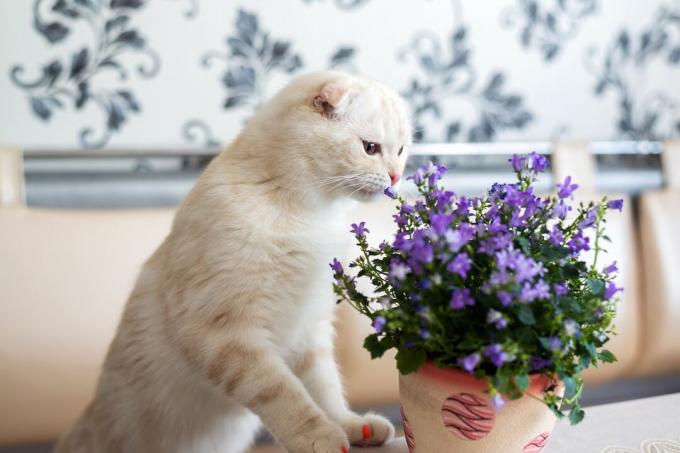As beautiful as they are, many fear the bluebell might be poisonous. We clarify whether bluebells pose a threat to animals or humans.

are in nature bluebells (campanula) quite common - more and more often also in gardens or even in apartments. But are these plants really non-toxic?
Are bluebells poisonous?
It has not yet been clearly proven that bluebells are non-toxic. However, they are also not poisonous. So there is disagreement on this issue. And so the question arises: If no symptoms of poisoning have occurred so far, is there any need to be cautious at all?
Are bluebells poisonous to humans?
The plants of the genus bluebells do not appear to be poisonous to humans. In any case, this plant is not deadly. The delicate flowers are even edible and a pretty decoration on salads and on the edge of the plate. To be on the safe side, caution is required with the other parts of the plant. However, in the case of careful handling of the plant, nothing can happen. No one would say that salt is poisonous, but ultimately the dose makes the poison. There is probably nothing in this world that is edible and not poisonous in large quantities at the same time. Therefore, the principle of caution always applies – but in moderation.
Are bluebells poisonous to cats, dogs and Co.?
In principle, bluebells can also be classified as non-toxic for animals. However, since the precautionary principle also applies here, the plant should not be specifically fed. Small animals such as rodents are particularly sensitive. For cats in particular, it also makes sense to offer enough cat grass as an alternative in the house. Cats prefer that anyway, so they don't even get tempted to try the bluebells. Outdoors, cats, dogs and horses often come into contact with wild bluebells. However, there is no danger from these.

Treatment measures for poisoning by bluebells
So far, no poisoning with bluebells is known. However, to be on the safe side, you should remove plant debris from the mouths of children or animals who have tasted it in an unobserved moment. Then rinse with still water.
In the event of symptoms of poisoning – however improbable they may be – you should still contact a doctor immediately.
If you have now decided to To plant bluebells yourself, you will find all information on the subject in this article.
